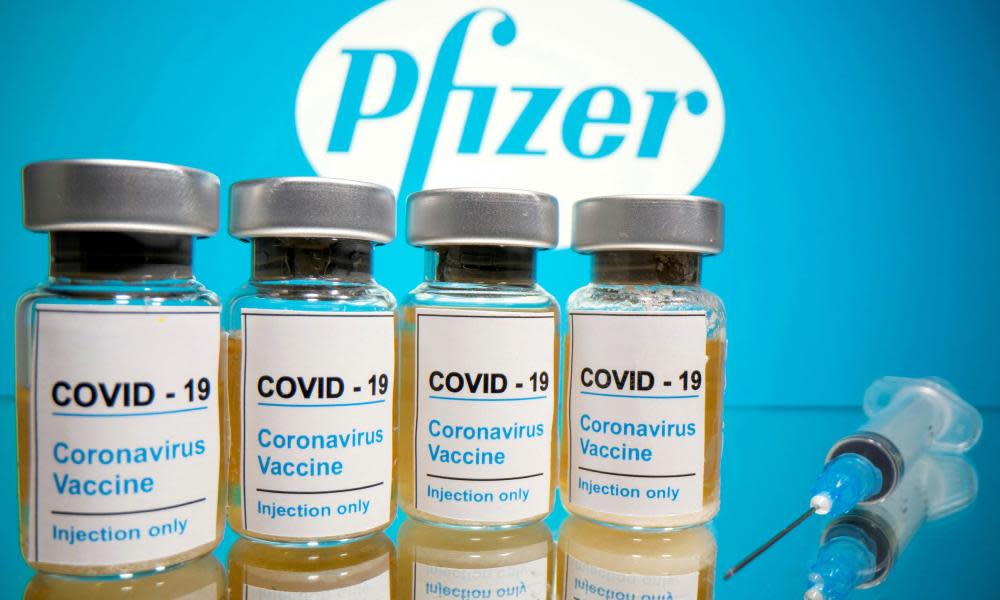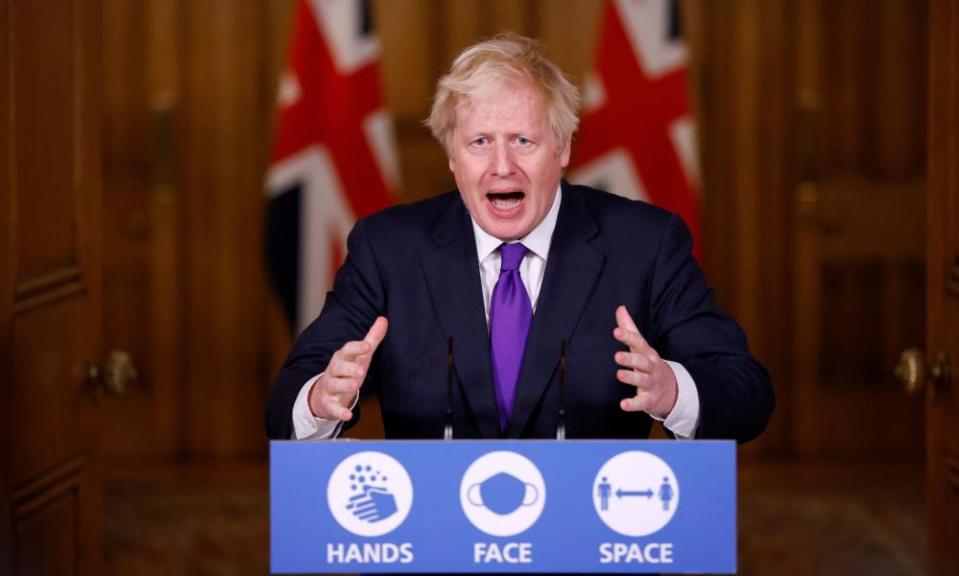UK's triumph at approving Covid vaccine must not become a chest-thumping exercise

The obvious joy and excitement over the UK’s approval of a vaccine against Covid, opening a way out of the pandemic, had barely begun to abate before questions started to arise over the speed with which the UK appeared to have stolen a march on the rest of the western world.
The health secretary saw this as a triumph for Britannia. Matt Hancock even tried to spin it as a triumph for Brexit. The UK had elected not to follow the cumbersome processes of the European Medicines Agency (EMA), which has said it will decide on a licence for the Pfizer/BioNTech vaccine by 29 December. Instead, said Hancock, the government had passed special regulations so that the UK regulator could go it alone, with fantastic results. Many British arms will be jabbed before the EMA has come to a decision.
But No 10 backtracked on the Brexit rhetoric fairly swiftly. The chief executive of the Medicines and Healthcare Products regulatory Authority (MHRA), June Raine, pointed out that they had enacted the approval under European rules, which remain in place for Britain until 31 December. There is a provision allowing any country to opt out of the EMA and deliver its own temporary authorisation for a new vaccine or drug if it is badly needed.
The MHRA has indeed pulled off a coup by delivering its verdict first. It has followed the process for an emergency use authorisation, and there is no evidence whatsoever that safety has been compromised. Raine said no corners had been cut.

But political posturing will not help the huge effort ahead to get the vaccine taken up by the elderly and vulnerable most at risk from Covid. There are already significant numbers of people who are alarmed by the idea of a vaccine developed and approved at top speed, and not just anti-vaxxers.
The EMA, perhaps nettled by the competitive and even boastful tone from UK ministers, has responded in a way that may not reassure those with doubts. The MHRA has issued a temporary authorisation for use in an emergency – not a full licence, the European regulator pointed out. The EMA considers the conditional marketing authorisation it is currently working on the most appropriate way to go.
It is “supported by extensive data” and “provides a controlled and robust framework”, the EMA said. “These are essential elements to ensure a high level of protection to citizens during the course of a mass vaccination campaign.”
That takes some of the shine off the MHRA’s achievement, which many will think is a shame. The UK regulator has a high reputation worldwide. Until Brexit, it worked hand in glove with the EMA. It was not a coincidence that the EMA was based in Canary Wharf, London, and its move to the Netherlands was one of the more significant Brexit departures.

Raine took great pains in her briefing to stress time and again that the agency’s own experts, and the academic advisers they call on from the Commission on Human Medicines, had been working flat out, painstakingly poring over every graph and data point, assessing with great rigour and thoroughness the quality, safety and efficacy of the Pfizer/BioNTech vaccine.
They believe they have ample data. They will spend Christmas paying the same attention to submissions from the Moderna and Oxford University/AstraZeneca vaccines. Public safety is at the forefront of their minds.
That is undoubtedly true, but there are often snags to anything new. Other countries are apparently wondering whether to follow the UK down the emergency authorisation route. “The world is looking at the UK at the moment,” said Prof Ralf Rene Reinert from Pfizer.
But there may be reasons to hold back. With a scientist’s frankness, Reinert went on: “My medical team is looking directly at how you implement it. There might be problems that you only see by introducing the vaccine. You are the first. If there are problems, we will work on solutions.”
Pioneers get the glory, but it’s an easier road to travel for those who come after.
The evidence that Pfizer/BioNTech have amassed looks excellent (although the full data is yet to be published), with 95% efficacy in all age groups and ethnicities, which is crucially important given the high toll Covid has been taking on some demographics.
The safety profile is just as good, with nothing more than the likes of sore arms and headaches in some volunteers, which is normal for vaccines. The trials include 43,000 people, so there is a lot of data already in the use of this vaccine and most serious side-effects should have shown up by now if there are any.
But it’s confidence in the vaccine and willingness on the part of those at risk to take it that is at stake now. That is not helped by a fight to be first.


